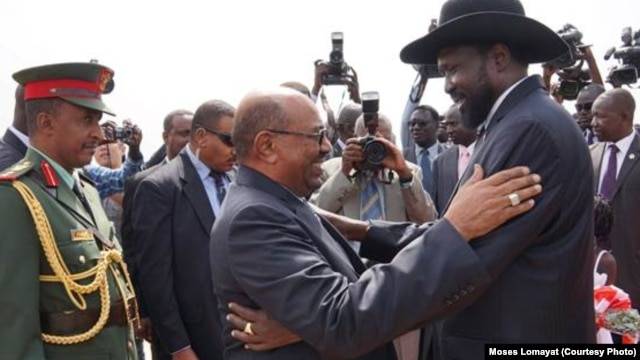sudan
Senior Member
- Oct 17, 2012
- 266
- 11
- 51
A lack of trust between Sudan and South Sudan has prevented implementation of crucial security and economic deals signed by the two countries two months ago, US special envoy to Sudan and South Sudan, Princeton Lyman, said last week at the US embassy in Khartoum.
Following his meetings with the Sudanese officials, Lyman has attributed the lack of trust to South Sudan backed rebellion in South Kordofan and Blue Nile.
He warned that obtaining that trust will be difficult unless rebellion backed by South Sudan ends South Kordofan and Blue Nile.
This remark does not necessarily indicate USs late familiarity or ignorance of the nature of the conflict. Definitely, Washington knows every thing on the joint borders and it will true if say that Washington prefers that the rebellion in the two regions to remain invoked for personal reasons and goals in Sudan. Its evident that the rebels in the two regions fights with South Sudanese weapons which come or bought by US.
Phoned by Sudan Safari electronic journal, reliable sources said that Lyman was worried over Sudans determination and emphasis on the implementation of security arrangements before any other agreements including the oil deal.
But, he finally, came around when he admitted that the core cause of the differences is the lack of trust.
In same time, Washington encourage the flow of the South Sudans oil exports via Sudan, because oil for US means life. Khartoum knows that, but it is untimely to judge if Washington will work for the joint cooperation agreement a.
The question is why Lyman has pledged to eliminate the cause of the crisis? Simply, the joint cooperation agreement was political gains for President Obama in the late presidential elections, so Obama administration doesnt help the failure of the agreement and the return to square one. In the same time, the administration doesnt want to loose Khartoum or to be at South Sudans disposal.
Following his meetings with the Sudanese officials, Lyman has attributed the lack of trust to South Sudan backed rebellion in South Kordofan and Blue Nile.
He warned that obtaining that trust will be difficult unless rebellion backed by South Sudan ends South Kordofan and Blue Nile.
This remark does not necessarily indicate USs late familiarity or ignorance of the nature of the conflict. Definitely, Washington knows every thing on the joint borders and it will true if say that Washington prefers that the rebellion in the two regions to remain invoked for personal reasons and goals in Sudan. Its evident that the rebels in the two regions fights with South Sudanese weapons which come or bought by US.
Phoned by Sudan Safari electronic journal, reliable sources said that Lyman was worried over Sudans determination and emphasis on the implementation of security arrangements before any other agreements including the oil deal.
But, he finally, came around when he admitted that the core cause of the differences is the lack of trust.
In same time, Washington encourage the flow of the South Sudans oil exports via Sudan, because oil for US means life. Khartoum knows that, but it is untimely to judge if Washington will work for the joint cooperation agreement a.
The question is why Lyman has pledged to eliminate the cause of the crisis? Simply, the joint cooperation agreement was political gains for President Obama in the late presidential elections, so Obama administration doesnt help the failure of the agreement and the return to square one. In the same time, the administration doesnt want to loose Khartoum or to be at South Sudans disposal.





